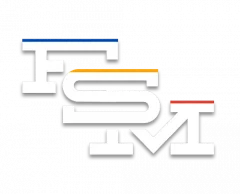The advancement of technology has always promised to improve the comfort, effectiveness, and prosperity of human existence. However, as developments accelerate at an unparalleled pace, a concerning concern stands: Could technology eventually replace human labor?
Over history, the nature of work has experienced profound changes: from the industrialization of the industrial era to the robotics of the information age. However, this present phase of technological advancement presents a distinct set of difficulties. It invites people, even you, to consider if the balance of machinery to human labor might move towards the benefit of the future.

The Changing Character of Work
Work has continuously evolved to keep up with technological advancements. In the past, machines have mostly served as instruments to increase human skills and production without dispensing with the necessity for workers.
However, the current era has seen the emergence of ever-more-advanced technology that is capable of acting, understanding, and making decisions on its own.
Industries that relied on labor-intensive tasks are now adopting automation. Robots are used in manufacturing processes to do precise jobs or take over the market, and AI systems automate management duties. This change is driven by the attraction of economy and efficiency. However, it also brings up significant concerns regarding the loss of human labor.
What Are the Impacts of Automated Systems?
Automation is expected to be incredibly efficient, reducing mistakes and increasing output. But traditional work faces a challenge from this particular productivity. Concerns of massive loss of employment arise from the possibility of human duplication in routine jobs that are accessible to automation.
However, history demonstrates that when technology eliminates some professions, it also opens up new career opportunities. The emergence of new professions and sectors, such as data researchers, and AI ethical scholars, demonstrates how flexible the labor market is in the context of rapid technological change.
There was a lot of hype and fear around the concept that AI might replace humans. One example of this was when AI expert Geoffrey Hinton left Google and said that the technology, he had helped develop might threaten humankind. His main concerns were about having enough control over AI and knowing enough about the advantages and disadvantages of its application.
Technology is not just changing the way people work, but it is also altering the entertainment industry, including the sector of online gambling. When people think about the finest games to play in their free time, it’s clear how technologies and human experience collaborate in many places, including the United States and Australia.
Experts in the field of game development can produce realistic and captivating games that maintain the element of chance and amusement that players may find appealing. Still, it is important to consider that there are types of gamers who are easily captivated by the design and graphics of gaming sites to those who meticulously check the best online pokies to play for real money to ensure their investments yield satisfying returns.
Having it stated, game developers should be ready as these scenarios arise. Both graphics, being the best among the competitors in the market, and a lot more factors should be taken into consideration. It stands as an evidence that something grand or simple in the realm of technology can be made possible now that everything is just a click away.
Strengthening or Overpowering?
Whether technology will completely replace human capacities or enhance them is the central question of discussion. Technology would, according to optimists, enhance human abilities in a harmonious relationship where machines take on routine chores and humans free themselves to concentrate on innovation, analytical thinking, and creativity.
On the other hand, futurists are doubtful about a time when machines will be smarter than people. They see a future in which human career possibilities across a range of industries are significantly reduced as AI algorithms get greater autonomy.
Moving Towards an Even Future
This technological crossroads calls for a diversified strategy to be navigated. Reflecting on the rise of skills is necessary to keep up with the changing scenery of the workforce. It becomes critical to prioritize developing traits that are specific to humans, such as creativity and mental agility.
It is necessary to adopt societal regulations such as guidelines for upgrading displaced workers, providing equal access to technology opportunities, and developing ethical foundations. It becomes essential for humans and technology to work together, with an emphasis on maximizing technology’s advantages while maintaining the fundamental value of human participation.
Conclusion
Could human labor be taken over by technology? This is a challenging and subtle topic. While labor patterns could be redefined by technological improvements, it is unclear how much and what effects this shift would have. The course of events is anticipated to entail a refined interaction between technological advancement and the timeless quality of human creativity.
In the end, the nature of employment will depend on our capacity to use technology as a source of empowerment rather than as a means of marginalization. The major obstacle of the present day will be finding a balance that respects both technological progress and respect for human work as we traverse this revolutionary age.



